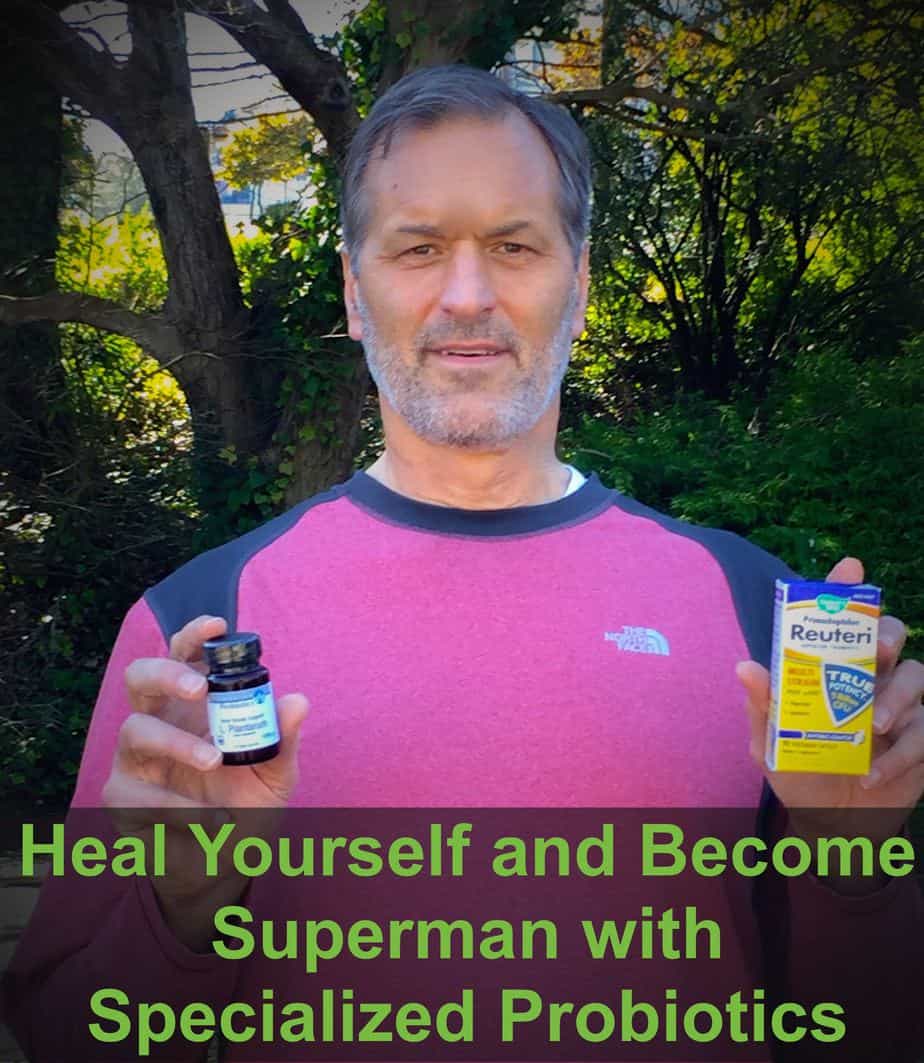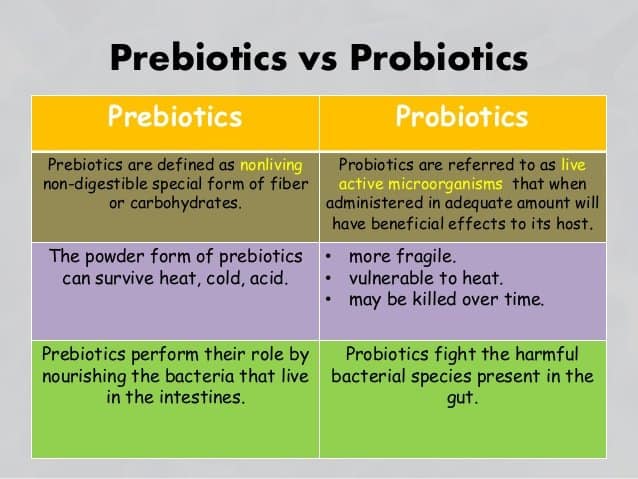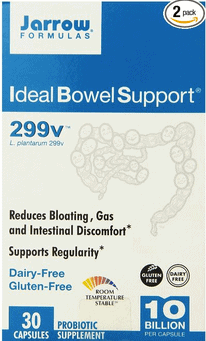Heal Yourself and Become Superman with Specialized Probiotics
Much of your health is in the hands of single-celled bacterium that live in and on you. This is the world of the microbiome, and scientists are discovering that specialized probiotics can help heal a variety of health issues that boggles the imagination. Watch and read on to learn how to restore and/or improve your health with specialized probiotics.
IN A study published as New perspectives on probiotics in health and disease, authors Drs. Eric Banan-Mwine Daliri and Byong H. Lee declare their fascination with new discoveries about how specialized probiotics can help prevent and cure an astonishingly large variety of health disorders.
They said:
The gut microbiota continues to fascinate scientists in many realms when it is considered that humans contain 90% bacteria. Correlations between changes in composition and activity of the gut microbiota and common disorders such as cancer, hypertension, hypercholesterolemia, inflammatory bowel diseases, obesity, oral health, etc. have been proposed.
In the Journal of Gastrointestinal & Digestive System, Drs. Singh, Mal, Bissi and Marotta wrote The Holy Grail of Designer Probiotics: The Probiotics with Multiple Health Benefits, where they tell us that:
- The alteration in the gut microbiome is a major underlying causative factor of diverse inflammatory and metabolic diseases.
- Prominent among hot topics of research investigate how probiotics can promote perinatal health, prevention of obesity and irritable bowel syndrome.
- Bioengineered probiotics with multiple immunogenic and antagonistic properties can deliver drugs, therapeutic proteins into host cells.
- Probiotics have been engineered for their stress tolerance profile, overcoming the physiochemical stresses of the host, and their applications in human nutrition and health.
I point you to these declarations for one very simple reason:
Your health is contingent on the health of your microbiota!
In this article, you’ll discover:
- A good overview about your microbiome by everyone’s favorite online science wonk Hank Green, from SciShow;
- The difference between pro and prebiotics;
- The story about the specialized probiotics strain L. reuteri;
- The specialized probiotics strain to cut cholesterol and LDL;
- L. plantarum 299v for Bowel Support; and
- Gastro-Ease Pylopass™ for Stomach Health.
Let’s dig in…
Hank Green on What’s Up with Your Microbiome
In the video below, science wonk Hank Green gives us a good introduction to probiotics and our vitally important symbiotic relationship with the bacteria in and on us.
If he convinces you that your mirobitoia is important and you want to test yours, check out the uBiome Test.
For more about uBiome, read my article, Discover Your Microbiome With The uBiome Test.
Now that you got the basics down, learn what you can do to improve the health of your microbiota (and thereby, your health, given that they’re the same) by first understanding the difference between pro and prebiotics, how to make sure you’ve got the best of both, and then examining how specialized probiotics can help improve specific health outcomes.
Probiotics and Prebiotics
Put simply, probiotics are supplements or foods containing ‘probiotic’ bacteria and prebiotics are supplements or foods that feed them.
What Are Probiotics
Your GI tract is home to more than 100 trillion* bacteria, often called microbiota, and the ecosystem that has them, the microbiome.
Ponder this a moment — at 100 trillion* in number, the bacteria in and on you outnumbers your human cells by a factor of ten or more. As I wrote in the 100 Trillion Reasons Your Fat, Sick and Depressed:
Is it possible that the 100 trillion* reasons you might be fat, sick and depressed are due to single-cell bacterium that proliferate your gut (among other places)?
[* May be less says new research, but still in the trillion arena.]The science on this is relatively young, but the scientists who study the microbiome are excited by what they’re discovering that, yes indeed, the type of bacteria that houses itself in you can help make you well, or sick.
These organisms have evolved along with their human hosts to produce a mutually beneficial, symbiotic relationship: gut organisms produce critical molecules that humans cannot make for themselves, while humans offer a safe and nutrient-rich environment in return.
Disruptions in the structure of the microbial community can be tied to specific health problems both within the bowel (e.g., inflammatory bowel disease) and in the body. This can be seen most clearly in obesity, metabolic syndrome, diabetes, and cardiovascular disease. (1)
All microbiota come from our mothers when we’re born, and from early childhood environments. Although this community of organisms can be stable throughout our adult lives, disruptions to the natural bacterial community can be caused by:
- Overuse of antibiotics and other medication
- Stress
- Diet
- Illness and chronic disease
Probiotics ingested as a drink, capsule or a food repopulate your gut with some of the friendly, beneficial bacteria that we might be missing or underrepresented in your microbiome. But you need not rely on supplementation if you’re ingesting enough probiotic bacteria-containing foods, such as:
- Yogurt
- Kefir
- Kimchi
- Pickles
- Kombucha
- Sauerkraut
- Sourdough bread
- Miso
Notice that the common denominator to the above foods list is fermentation — fermented foods typically contain probiotic bacteria.
If you consistently eat a variety of fermented foods throughout the week, you may not need to supplement with probiotics.
That said, it sure can’t hurt, and as you’ll see in a few moments, some specialized probiotic strains may be more valuable than drugs to help heal certain health issues, like cholesterol plaque build-up, high LDL, bowel disease and stomach lining issues.
But before you get fancy with your probotic supplementation, make sure a good foundation is in place.
Dr. David Williams — a medical researcher, biochemist, and chiropractor who I began following via his snail-mailed newsletter in the mid 1980s — makes some good suggestions in his article, How To Choose The Best Probiotic.
Dr. Williams says that probiotic supplements that contain multiple strains tend to be more effective overall than products containing an extremely high concentration of just one or two strains. This is because the different strains of probiotic bacteria have slightly different functions and are concentrated in various places along the digestive tract, and because many strains work synergistically to influence our health.
For Dr. Williams, the best probiotic supplements will include at least these three most important strains:
- L. acidophilus—This is the most important strain of the Lactobacillus species and, it readily colonizes on the walls of the small intestine. It supports nutrient absorption and helps with the digestion of dairy foods.
- B. longum—Like L. acidophilus, B. Longum is one of the most common bacteria found in the digestive tracts of adults, and it helps maintain the integrity of the gut wall. It is particularly active as a scavenger of toxins.
- B. bifidum—This strain, found in both the small and large intestine, is critical for the healthy digestion of dairy products. This is especially important as you grow older and your natural ability to digest dairy declines. B. bifidum also is important for its ability to break down complex carbohydrates, fat, and protein into small components that the body can use more efficiently.
Secondarily, he likes:
- L. rhamnosus—Known as the premier “travel probiotic,” this strain can help prevent occasional traveler’s diarrhea.
- L. fermentum—This Lactobacillus strain helps neutralize some of the byproducts of digestion and promote a healthy level of gut bacteria.
What are prebiotics
Prebiotics act as food for the probiotic bacteria to feed on and grow.
Prebiotics are naturally occurring foods in our diet which cannot be broken down by us, but it just so happens that these foods are mana to the probiotic bacteria that can break them down and thereby be nourished.
Prebiotic foods include:
- Raw Jerusalem artichokes
- Raw Garlic
- skin of apples
- Bananas
- Raw Chicory
- Onions
- Cabbage
- Beans
Just as there are foods that feed your beneficial bacterial, there are also a host of things toxic to them. I like the list compiled by the aforementioned Dr. David Williams.
Here’s Dr. Williams’ list of “things” toxic to gut bacteria:
- Antibiotic use. “Probiotics” means “for life” and “Antibiotics” means “against life”. Adhering to these definitions, antibiotics will kill off the harmful bacteria, and so you should endeavor to restore that good bacteria after taking antibiotics.
- Increased availability and use of over-the-counter products and medications, such as mouthwashes, aspirin, antacids, painkillers, and laxatives. NSAIDs, especially, can promote stomach and intestinal bleeding as well as increase the permeability of the entire GI tract. When the GI tract is more permeable, larger proteins, bacteria, and toxins can enter the bloodstream, resulting in allergic reactions, increased stress on the immune system, and the spread of toxins throughout the body. Researchers have also found that continued use of NSAIDs for rheumatoid arthritis can disrupt the intestinal mucus lining and flora and may even contribute to the continuance of the disease.
- Dramatic changes in our sanitation procedures, including widespread use of cleansers—particularly antibacterial soaps, shampoos, and creams.
- Chlorinated drinking water. Drinking chlorinated water can make it almost impossible to keep up ideal bacterial flora in the gastrointestinal (GI) tract because chlorine kills all bacteria, regardless of whether they’re good or bad.
- Pesticide and herbicide use.
- Douches and excessive colon cleanses.
- Surgeries, colonoscopies, and chemotherapy/radiation therapy.
- Exposure to pollutants such as heavy metals, including amalgam dental fillings. Having amalgam fillings in your mouth is like being hooked to up a mercury IV drip system. Mercury is extremely toxic. There’s little doubt that it disrupts the normal microflora in your mouth and affects the entire gut.
- Sterilized foods. During pasteurization, milk is heated to 162 degrees for a minimum of 15 seconds. This doesn’t eliminate bacteria, but drops some forms of bacteria to lower levels and extends shelf life. When you destroy the natural enzymes, proteins, and various forms of beneficial bacteria in raw milk, it can’t naturally ferment and stay consumable. It spoils. During ultra-pasteurization, milk or cream is heated almost instantaneously to about 280 degrees and then rapidly cooled. This extends shelf life, but also alters various proteins, flavor, and naturally occurring beneficial bacteria.
- Artificial food coloring. Food coloring is routinely added to food products to make them look more presentable. Research on these compounds has focused primarily on toxicity factors, but if you dig deeper, you’ll find that many food coloring have been shown to show both antibacterial and anti-fungal properties. This is generally considered a positive attribute and marketed as such. However, when we begin to concentrate and purify or create these compounds synthetically, we run the risk of disrupting the natural order of microflora in our bodies.
- Antidepressants and sleeping pills. Antidepressants, benzodiazepines, and sleeping pills are all fat soluble. This allows them to more easily penetrate the intestinal wall. There is a direct and extensive connection between our intestines and our brain.
- Selective serotonin reuptake inhibitors (SSRIs). This family of antidepressants is thought to relieve depression by increasing serotonin levels in the brain. But 95% of the body’s serotonin is in the digestive system. With these medications, serotonin is diverted from the intestinal tract, causing a chemical imbalance in the area. This explains side effects like fluctuations in appetite, nausea, and stomach upset. These chemicals attach to gut receptors that tend to sedate and depress gastrointestinal movement, resulting in constipation.
- Altered fats in food products. Fats are necessary in producing and maintaining cell walls. Fats give the barrier that keep many toxins, pathogens, and water-soluble compounds from freely crossing into the bloodstream. A diet containing artificial or poor-quality fats leads to permeable cell walls and the resulting difficulties with allergies, toxicity, and a chronic load on the immune system. The cell wall is not our only barrier to the outside world, it also is the “soil” or “field” where the protective bacterial microflora live and flourish. A break in the cell wall or barrier could be compared to having sewage drip into your supply of drinking water.
- Increased consumption of carbohydrates. Bacteria feed on sugar, particularly pathogenic bacteria. Yeast also feeds on sugar. Yeast doesn’t feed on yeast.
- Anti-cholesterol drugs. Cholesterol is a key part of nerve insulation. Cholesterol is essential in the construction of cell walls. But too many of us consume too much dietary cholesterol; one in every four men aged 45 and over were now taking statins, the most popular family of anti-cholesterol drugs — and that threatens a healthy microbiome.
- Dramatic increase in the use and variety of vaccinations. We’ve seen an explosion in vaccines, and it looks like a trend that will continue. We’re delving into uncharted territory when we start injecting strange, fractionated viruses, bacteria, and other pathogens into our bloodstream with the hope our immune system will be able to deal with them. What might be even worse is the effect this has long term on our microbial flora and that of future generations, and no one seems to be concerned.
To help fight against all the various toxins that threaten your microbiota, consider taking both probiotic and prebiotic supplements. Keep in mind Dr. Williams’ criteria for good, high quality probiotics.
Next up, I’m going to introduce specific probiotic strains that studies show can help heal specific health issues.
L. reuteri 30242, a Specialized Probiotic for Heart Health, etc.
I first read about Lactobacillus reuteri in an MIT study summarized by ergo-log. The title would grab the attention of any 40-plus year-old male: “probiotic Lactobacillus reuteri ATCC 6475 boosts testosterone synthesis”.
As I’ve said before in the various testosterone articles I’ve written, I stay perched on the lookout for natural ways to boost testosterone. I had never contemplating doing so with a particular probiotic strain, so was intrigued by this MIT study, particularly given that it referenced other studies that indicated L. reuteri also could cut excess body weight, boost the production of anti-inflammatory interleukin-10 by immune cells, and cut the synthesis of pro-inflammatory signal proteins such as interleukin-6 and interleukin-17.
So, to summarize, L. reuteri was shown to:
- Reduce body fat
- Increase testosterone
- Decrease inflammation, generally regarded as the precursor to most chronic disease.
Sweet!
It didn’t phase me that these were mice studies; I flung open my Macbook Pro, typed in “Amazon” and ordered Natures Way Reuteri. (That’s the box container I’m holding in the picture above.) It arrived in two days.
Though I wondered why the benefits listed on the box did not include, “Will make you a hunk of a man”, or some other testosterone-like claim — but instead just said, “supports healthy immune function and digestion” — I eagerly consumed the bottle over the course of a month.
My biceps didn’t bulge. I didn’t notice anything different, but this was unsurprising given that the only testosterone boosting supplement that made an obvious difference was Mike Mahler’s Aggressive Strength Testosterone Booster. I simply figured something good was happening and left it at that.
Then I read another ergo-log post called Lactobacillus plantarum TWK10, the probiotic in Superman’s belly. Naturally, I said to myself, “I’ve got to have that”, and again Amazon complied. (That’s the bottle I’m holding in the picture above.) Two days later, the mailman brought me Swanson’s L. Plantarium. Again, I was unperturbed that prominently displayed on the bottle was: “Inner Bowl Support”.
Yeah, it might be good for that, too, but my aim was to be like those mice studied in the L. plantarum study. Here’s what happened to them: 
- Their strength increased
- Their endurance increased
- Their fat mass decreased
As before mentioned, Sweet!
It wasn’t until I read an article by Celine Thompson for the Life Extension Foundation that I realized I’ve overlooked something.
I overlooked the specific type or strain of L. reuter and L. plantarum that offered the benefits I was seeking. I missed the numbers listed after the name of these strains:
- The L. reuteri that boosts testosterone synthesis is “Lactobacillus reuteri ATCC 6475″
- The L. plantarum that increases strength and endurance is “Lactobacillus plantarum TWK10″
Although the garden variety L. reuteri and L. plantarum I purchased might convey some of the benefits sought, they weren’t the strains studied and shown to offer said benefits, at least in mice.
Which brings me to another benefit of L. reuteri, specifically, “L. reuteri 30242″. This is the strain that Celine Thompson wrote about that can reduce total and LDL cholesterol levels, without statin drug side effects.
Given that more Americans die of heart disease than any other disease, this could be a big deal.
This is a list of benefits imputed to L. reuteri 30242:
- Cardiovascular disease continues to be a leading killer of Americans, despite advances in drug and surgical therapies.
- Probiotics (cultures of beneficial organisms) have long been used to promote gastrointestinal health.
- New research is producing a generation of “condition-specific” probiotics, each for addressing a particular disease associated with aging.
- One of the first such probiotic supplements to reach the market is the patent-protected Lactobacillus strain called L. reuteri 30242.
- L. reuteri produces a specific enzyme that “traps” cholesterol in the intestine and prevents it from being reabsorbed, thereby lowering plasma cholesterol levels.
- Further cholesterol reductions come from the organism’s ability to increase cholesterol metabolism, thereby promoting its breakdown and excretion.
- Clinical studies show that L. reuteri supplementation rivals certain cholesterol-lowering drugs in its ability to reduce dangerous total and “bad” cholesterol levels without side effects, while also reducing markers of inflammation that further promote cardiovascular disease. (2)
I’m thinking that anyone who is seriously concerned about reducing the risk of early death from heart attack, stroke, or other cardiovascular catastrophe should begin supplementation with this cutting-edge probiotic.
The pertinent question is:
Where to find it or any other of these specific probiotic strains?
The Life Extension Foundation is the answer for Lactobacillus reuteri 30242 in a product called FlorAssist® Heart Health Probiotic.
Apparently, this particular L. reuteri strain isn’t going to get you all hunky from testosterone, but it could gobble up some of that cholesterol clogging up your arteries.
According to the LEF product description for FlorAssist, it:
- Supports healthy cholesterol already within normal range
- Supports healthy LDL particle size
- Promotes a healthy inflammatory response
- Maintains healthy fibrinogen levels, a protein involved in clot formation
Supports Healthy LDL Particle Size
The size of the LDL-cholesterol particle has a greater impact on maintaining heart health than the absolute number of LDL-cholesterol particles. The LDL-particle size is influenced by a lipoprotein attached to its surface called apoB-100.
Lactobacillus reuteri 30242 has been shown to support healthy apoB-100 levels, which may help to keep up healthy LDL particle size.
Maintains a Healthy Inflammatory Response
A healthy inflammatory response is critical to maintain for health and longevity. C-reactive protein (CRP) is a sensitive marker of inflammation that has emerged as a powerful predictor of overall cardiovascular health. Lactobacillus reuteri 30242 has been shown to support healthy CRP levels.
Maintains Healthy Fibrinogen
An important contributor to blood clotting, fibrinogen levels increase in response to cardiovascular stress. Since the overall health of the heart and blood vessels is intimately connected to healthy inflammatory factors, supporting fibrinogen within optimal levels helps to maintain a healthy cardiovascular system. Lactobacillus reuteri 30242 has been shown to support healthy fibrinogen levels.
L. plantarum 299v for Bowel Support
L. plantarum TWK10 for testosterone boosting might be hard to find, but as mentioned, the specific strain for the bowls can get to you in two days via Amazon.com.
We’re talking L. plantarum 299v, which Jarrow markets as “Ideal Bowel Support 299v™“.
According to the product description for Ideal Bowel Support 299v, it:
- Has been isolated from human intestine and has been shown to have superior mucosal adherence and a general advantage in the gut.
- Metabolizes sugars and fibers into vital nutrients, such as short chain fatty acids (SCFAs), polyamines, vitamins, antioxidants, and amino acids, which are the primary nutrients for colonocytes and essential for general gastrointestinal health and function.
- Is known to stimulate the secretion of mucin, which hinders the growth of undesirable bacteria, and creates friendly intestinal environment for healthy microflora.
Gastro-Ease Pylopass™ for Stomach Health
This is a LEF product containing a specialized strain of L. reuteri that LEF patented as Pylopass™. What it does is to help line your stomach wall with a protective coating of mucos, and thereby better protect the delicate lining of the stomach wall from stomach acids.
In addition to the L. reutri strain, Gastro-Ease™ has a specialized form of zinc:
- Zinc-L-carnosine directly affects the cells of the stomach wall responsible for producing the protective layer of mucous.
- Zinc-L-carnosine promotes a healthy inflammatory response, and encourages the healthy production of protective mucous.
- Zinc-L-carnosine supplementation also promotes digestive comfort: one study showed that 75 mg of twice-daily zinc-L-carnosine much reduced factors associated with gastric discomfort in just 8 weeks.
Your Takeaway
Remember these 6 things:
- You need a healthy microbiome, which means that the bacteria that populates it needs to be dominated by the beneficial microbiota that supports nearly every aspect of your biochemistry.
- Consume a high quality probiotic supplement with the attributes laid out by Dr. Williams above and keep them nourished with prebiotics.
- You may be able to build up and sustain a healthy microbiome through your diet by regularly eating fermented foods (probiotics) and undigestible fiber (prebiotics), but if in doubt, supplement.
- Specialized probiotics that can help heal specific health problems are being discovered, created and studied, and should be examined by you to see if they should be part of your wellness regimen.
You may test your microbiome with the uBiome Test. Use discount code: Garma15Update: Sorry to say that uBiome is out of business.
- Stay tuned to this site for updates about how specialized probiotics can help us live long and strong by helping to keep us healthy.
Further reading
Test How Your Invisible Gut Bacteria Affects Your Health
 The reason you should test how your gut bacteria affects your health is pretty straightforward — those bugs impact nearly every aspect of your well being, so learn how to find out if yours are working for or against you.
The reason you should test how your gut bacteria affects your health is pretty straightforward — those bugs impact nearly every aspect of your well being, so learn how to find out if yours are working for or against you.
Your Personalized Nutrition Courtesy of 100 Trillion Bacteria
 You will soon be able to easily get your personalized nutrition plan designed for your very own uniqueness. No more “hit or miss”, “trials and tribulations” or confusion. Learn now what a brand new study about your microbiota and blood sugar reveals.
You will soon be able to easily get your personalized nutrition plan designed for your very own uniqueness. No more “hit or miss”, “trials and tribulations” or confusion. Learn now what a brand new study about your microbiota and blood sugar reveals.
uBiome’s 7 Secrets About How Some Gut Bacteria (like Firmicutes) Can Make You Fat
 They’re unseen, largely unknown, and number in the trillions, but your gut bacteria can make you fat. We’re talking Firmicutes and Bacteroidetes. Here’s the story and what you can do about it.
They’re unseen, largely unknown, and number in the trillions, but your gut bacteria can make you fat. We’re talking Firmicutes and Bacteroidetes. Here’s the story and what you can do about it.
100 Trillion Reasons You’re Fat, Sick and Depressed (Part 1)
 Is it possible that the 100 trillion reasons you might be fat, sick and depressed are due to single-cell bacterium that proliferate your gut (among other places)? Prepare to be amazed, and a bit confounded.
Is it possible that the 100 trillion reasons you might be fat, sick and depressed are due to single-cell bacterium that proliferate your gut (among other places)? Prepare to be amazed, and a bit confounded.
The 4 Food Solution to the 100 Trillion Reasons You’re Fat, Sick and Depressed (Part 2)
 The four food solution will help you build a healthy gut, strong immune system, better cognitive function, better body composition, and more. Surprisingly, it’s all about your microbiota.
The four food solution will help you build a healthy gut, strong immune system, better cognitive function, better body composition, and more. Surprisingly, it’s all about your microbiota.
Discover Your Microbiome With The uBiome Test
UPDATE: uBiome is out of business. Do read the rest of this article to learn more about the importance of your microbiome and how to take care of it, but references to uBiome may be disregarded.
 What lives on and in you, is ten times more numerous than your cells, and can profoundly influence your health without you having the slightest idea of their existence? There are surprises ahead, so go read and watch some video for a spell.
What lives on and in you, is ten times more numerous than your cells, and can profoundly influence your health without you having the slightest idea of their existence? There are surprises ahead, so go read and watch some video for a spell.
Can The Right Gut Bacteria Fight Obesity And Slay Metabolic Syndrome? (Part 1/2)
 DO YOU have any idea what happens within minutes of eating a McDonald’s breakfast of an egg sandwich with cheese and ham, a sausage muffin sandwich, and two hash brown patties?
DO YOU have any idea what happens within minutes of eating a McDonald’s breakfast of an egg sandwich with cheese and ham, a sausage muffin sandwich, and two hash brown patties?
How Gut Bacteria Increase The Chance You’ll Suffer From Metabolic Syndrome And A Simple Solution (Part 2/2)
 New research suggests a powerful interplay between your gut microbiota and inflammation, which can dramatically increase the risk factors contributing to metabolic syndrome, such as obesity, cholesterol and triglycerides. The good news — there’s a simple solution.
New research suggests a powerful interplay between your gut microbiota and inflammation, which can dramatically increase the risk factors contributing to metabolic syndrome, such as obesity, cholesterol and triglycerides. The good news — there’s a simple solution.
Last Updated on June 14, 2023 by Joe Garma










